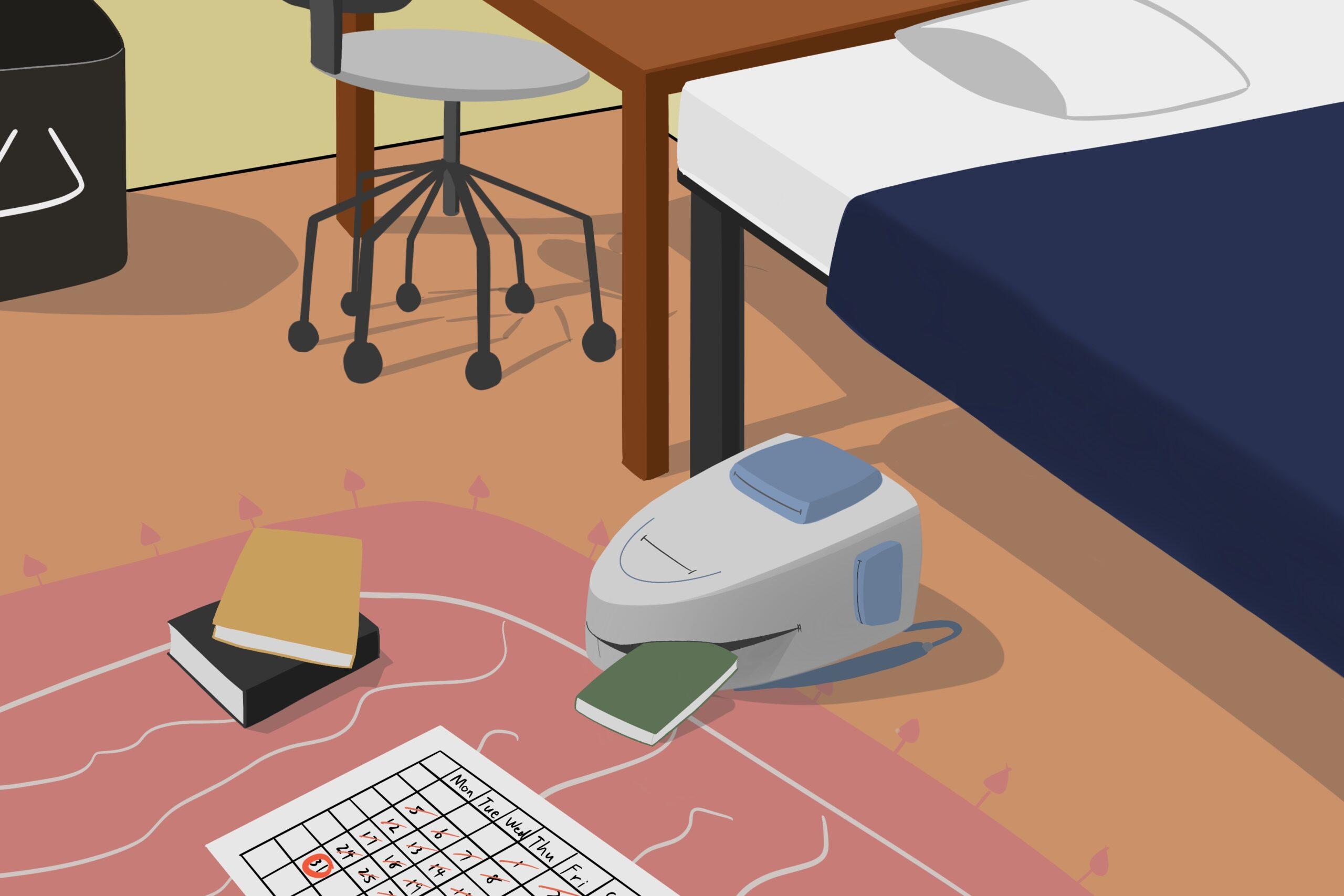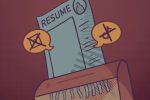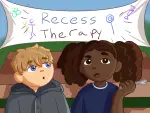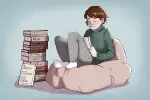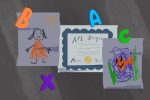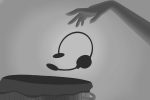Trigger warnings: Suicide and alcoholism
How does one end up being someone they don’t like in a life they don’t want to live?
I was raised by parents who answered that question in very different ways and, in turn, helped me learn how to lead an authentic life. In attempting to answer this important question, I found myself traveling a different path than I had first chosen. During the pandemic, before I decided to return to college at 35, I took time to examine my relationships and myself and how I felt about the life I was living. Looking at myself with open eyes, I was able to see the changes I needed to make to find my path to an authentic life. But the decision to return to school as an adult was not an easy one.
I always prided myself on being one to walk the road less traveled. I graduated high school at 16, partially because I was determined to leave my childhood behind as quickly as possible. I missed most of the common American high school experiences, such as taking the SATs, attending prom and walking the stage for graduation. Instead, I sat in the audience as my graduating class walked, re-enacting the high school graduation story my dad was so fond of relating. My dad had inherited a moderately successful family business that he worked at until his death, and was adept at limiting his life to only what felt comfortable and familiar. My mom, on the other hand, spent her adult life focused on finding her path to happiness. In her 30s, she was the first of her family to graduate college. In emulation of my dad, I unconsciously chose his path of comfort to travel on first.
Part of leaving my childhood behind included marrying at 18. I began attending college at 17 but quickly dropped out, unaware of how vital my education and future career would be to my later happiness. Instead, I married an Army man and left my home state, moving to South Korea and then Kansas during my 3-year marriage. Although I had escaped my traumatic childhood and was a full-fledged adult in charge of my own life, I was still not happy. I had no goal to drive towards, and no overall plan for my life — all I had accomplished at this point was to get away. But escape was not enough to give me the authenticity and happiness that everyone yearns for in their lives. I wanted to be glad I was alive, not drudging through every day, anxious of the next.
Being a housewife was so incredibly, indescribably unfulfilling and boring that I refused to let being an army wife amount to my only “job” or identity. As I began to comprehend the emptiness of my life lived without personal goals or drive, I began to realize I would have to work to make the changes I needed. Sometimes, though, those changes are intimidating.
In 2008, I divorced, began a career in technical support and attempted to finish my bachelor’s degree in English. My aim was for a career in education as a high school English teacher. I was working full time and going to school part time, relying on student loans to cover college fees. My degree was a victim of the Great Recession. The sustained recession had such a large impact on the American economy and housing situation that it made me wary of adding on more student debt to the mounting cost of living, so I made the choice to withdraw from college.
My career in IT was going strong, however, and I was getting promoted regularly, but I did not find the work compelling. I still dealt in customer service, which I had been involved in one way or another since I was 15. The pay was decent and there was upward mobility available. But the longer I stayed in the company, the more unhappy I grew. I wasn’t intellectually stimulated or treated with respect at my job, which I found out is vital to my feeling content. However, I stayed with the company because it was scary to leave the stability I had come to rely upon.
All my childhood, I had watched my dad go to work every day, hating every minute and aspect of his job. He continued to get up early and work late for years because it was what he saw his father do, because he didn’t have any other answer and because my dad was scared to change. With his example set for me, I thought being unhappy with your lot in life was a normal path that many people take.
Initially, I didn’t change careers because I wanted to — I changed careers because of a change I had no control over. My father, who was an alcoholic most of my life, killed himself the day after I was promoted to the position I had been working towards for my entire IT career. His unbearable unhappiness with who he was, the life he was living and the path he had chosen and continued to choose overwhelmed him. It was an indescribable experience, and it destroyed my family. But it ultimately taught me an extremely important lesson about unhappiness. Unhappiness can kill and does every day. And after the dust settled from my dad’s death, I was ready and determined for the changes I had feared for so long. I was ready to change my life, change myself and change the path I was traveling down. Luckily, I had my mom and her journey to look to for inspiration.
My mom graduated college in her 30s, started her own successful business, and bought the ranch of her dreams. She went to therapy, women’s groups and Al-Anon, determined to change the trajectory of her life and find meaning and happiness. She was determined to end generational trauma and to raise her two stepchildren with incredible love. She resolved to fulfill her personal goals and fight for her happiness. Her struggles, failures and successes normalized attempting to change, to grow and fight for your needs. I can still remember my mom’s beaming smile the day she graduated. That memory is crystalized in my mind, a beacon of joy and hope I return to again and again when I’m wrestling with my own unhappiness and unfulfillment. Her decision to pursue her goals and happiness, even while raising two children, set the example I would follow in the future.
What I found after my dad’s suicide was that happiness is all about discomfort. The more I pushed my boundaries and made myself uncomfortable, the more my world grew and expanded. After twenty years in customer service, I decided to live my life a different way. I began therapy to try to understand what would help me find happiness. I rediscovered my goals and my enthusiasms, and learned to sit with the discomfort of enlarging my comfort zone. I gained the courage to re-enroll in college after a decade, even though I was terrified about being judged for my age and abilities. I looked to my mom for inspiration and what I found. After pushing my boundaries and myself, I found a life I am happy to live. She helped me choose the road less traveled by and that made all the difference.


